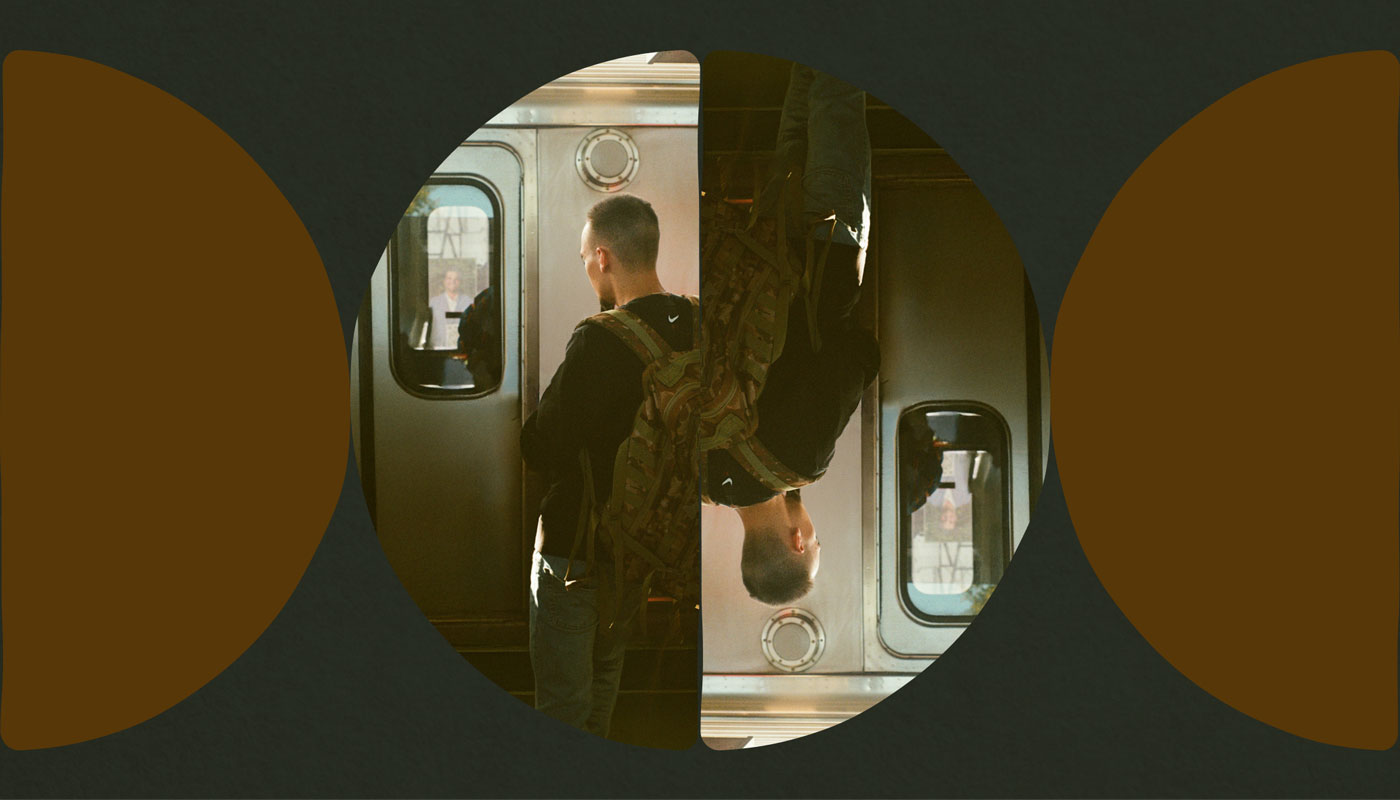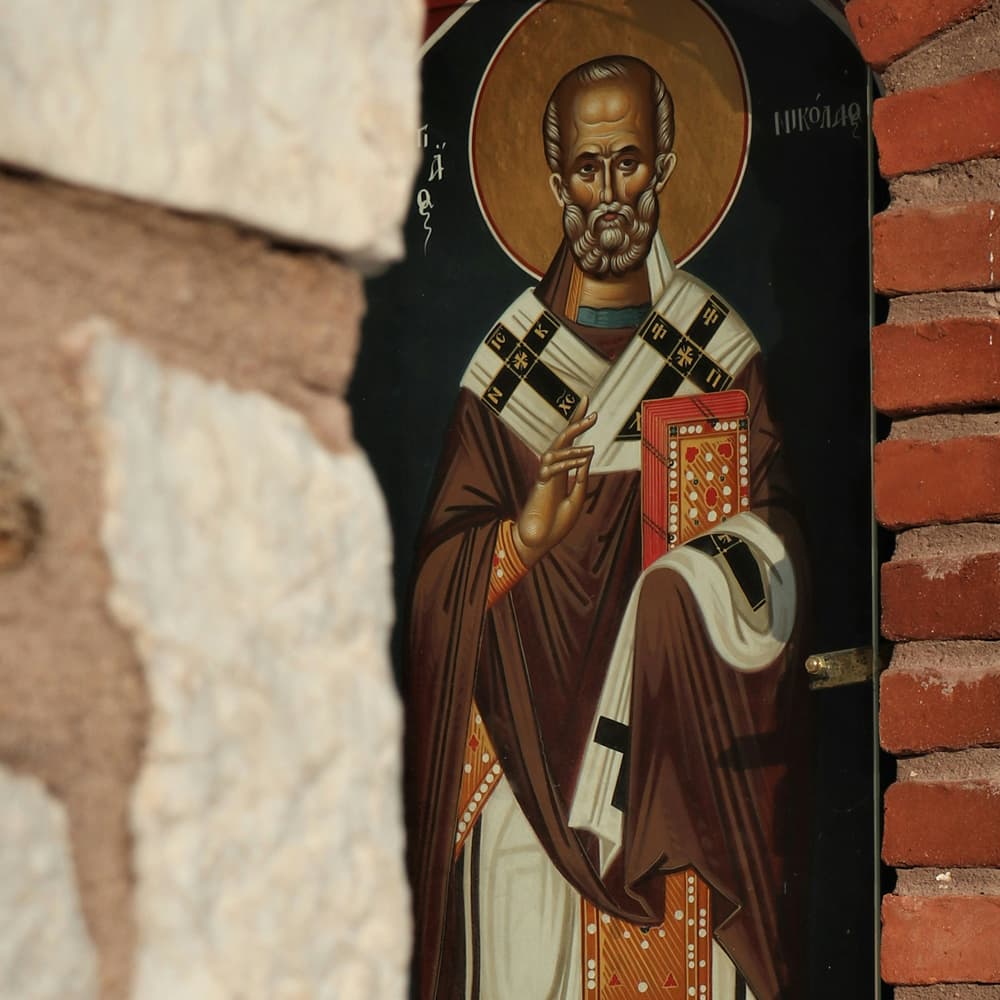When was the last time you experienced loneliness?
Do you recall the feeling? The enveloping ache and the swarm of emotions—the sadness, the anxiousness, the uncertainty, the smallness, the shame, even—that the experience entailed? Terrible, wasn’t it?
Do you recall what it was like to feel “on the outside” of so much? Outside of relationship. Outside, as it were, of the flow of life, while you looked on and looked “in” with helpless longing?
I say here, “experience,” because loneliness is more than a mere feeling, isn’t it? I ask when the last time you “experienced” loneliness was because loneliness is more than a mere grouping of feelings. Have you noticed that? It turns out that loneliness is better referred to as a state, a mode of being, for which none of us was made.
Lonely people wear their condition all over. We can see it in their posture, in the way they carry themselves in and among the common spaces that we inhabit—the elementary school playgrounds, the corporate water coolers, the lumber piles at coffee time on job sites and the fractured family dynamics that mark our lives. There’s something objectively different about a human who is pervaded by loneliness.
Perhaps you don’t need to recall it. Perhaps, as you read this, you find yourself squarely in the middle of such a dilemma. Perhaps loneliness is written all over your posture.
If so, my Dear Neighbor, I’m so sorry. I’ve been there too. That hollow condition—that pain so distinct, so particular and total—is one that we all know in various seasons and to some degree. Loneliness feels like a bringer of death—the death of joy, the death of clarity and vision, the death of meaning, the death of ambition and hope. Loneliness is a condition of disoriented alarm, a cry from within that screams, “I’m meant for something more than this—I’m empty in a way I’m not meant to be and I’m starving!”

Starvation is a condition that tells us we have a nature that is meant to be nurtured. Starvation points to something in our design, in the way that we are built and to what is good for us on those terms. Loneliness, like all universally negative experiences in human life, points to something for which we are made. Loneliness, it turns out, exists as a warning to us. It is a natural reflex that tells us about our needs. These needs are the central features in our human heritage, and they point to our Origin Story, to the building blocks of our shared humanity.
A study on the impact of isolation
In 1942 the world learned something new about loneliness. It was so significant that it shook the foundations about how we think about what we are, about what human being is. Dr. Harry Bakwin wanted to improve societal understanding about the conditions that had led to such a high rate of mortality in the institutions that housed and “kept” orphans. Dr. Bakwin was compelled to understand why so many infants and children died in such environments—between 66 and 100% of all children under one year of age, depending on the institution.
The conclusions that Dr. Bakwin drew were conclusive. Children in such settings were primarily given what they needed in the strictest of biological senses; they were clothed and fed and medicated. But the haunting revelation that Dr. Bakwin relayed to the world was this: “failure of infants to thrive in institutions is due to emotional deprivation.” Those precious children and babies were… lonely. Another researcher, Dr. Ines Varela Silva, summarized Dr. Bakwin’s findings with this statement:
“Most of these deaths were not due to starvation or disease, but to severe emotional and sensorial deprivation – in other words, a lack of love. These babies were fed and medically treated, but they were absolutely deprived of important stimulation, especially touch and affection.”
So, to be clear, the meeting of our physical needs is not enough—not by a longshot—to carry us through both the beautiful and the brutal in this life. Just as a plant that is not watered will perish, so, too, will the soul—and eventually the body—of a precious infant who is deprived of the warmth of touch, the safety of embrace, the gaze of love, that tells them, “You belong to me, to us—you are one of us and will, thereby, never be ultimately alone.”
We are made for belonging and relationship. We are built for intimacy. We are not meant to be alone or isolated.
Bakwin’s discoveries in 1942 continue to yield fruit and shed insight, we now know, for instance, that loneliness acts like a disease in that it begins to pervade us in a self-replicating dynamic. At first, feeling temporarily excluded can initially motivate us to engage in social risks that will become new friendships or to work more congenially with others toward such ends so long as we are rewarded for such efforts with new social bonds. But “Prolonged feelings of social disconnection turn the positive impulses toward the negative,” however. This insight comes from Cacioppo and Patrick, who have devoted their professional lives to the study of loneliness and its effects.

That is, the effects of loneliness are never “merely” emotional. Loneliness becomes like yeast in bread; it begins to negatively influence everything from social aspiration to overall health decisions such as diet and exercise.
Further to this, these researchers observe pioneering discoveries that, not only do “we” (as a self) experience loneliness as something more than temporary emotional distress, but so do our brains.
In fact, it seems our brains cannot and, therefore, do not, distinguish between loneliness and acute physical pain.
With such valuable information regarding the symptoms of our condition having been offered by science in so resolute a manner, we might finally ask, “What does all of this tell me about who or what I am; about who or what we are?”
Where science gives us an abundance of “how’s” and “what’s,” other areas of study and focus provide us the “why’s” and “who’s” we need to pull this human enterprise into alignment with what is ultimately good for us.
Why are we made with a need for connection
Despite all of the deprivations of the modern world, our souls continue to issue the pronouncement that we are made for something more than mere physical provision and nourishment; that the human being is more than mere particles and progress.
To the vast majority of us the matter is a plain one. We know we need relationships. We know we crave them. But discerning a need or a longing is not the same as knowing the nature of the being that issues the cry. One is a sign of the other to be sure.
The work that remains is to take from these longings, this evidence of the effects of social privation, in order to finally identify the nature of the wonderous being that has been shouting at us.
Against the backdrop of the tragic observations offered above, some ancient words seem to carry different meaning and relevance:
“The LORD God said, “It is not good for man to be alone. I will make a helper suitable for him.” (Genesis 2:18)
Many of you will have heard or read this passage. It comes from the Bible. As the scripture above indicates, God saw fit to establish humankind to need companionship.
The story also tells us something prior, something about the nature of God, which, the story claims, spells itself out into ours. Turns out, it is not good for God to be alone, either. Turns out, according to the story, that God’s very nature is, and always has been, communal. “Let Us make mankind in Our image, according to Our likeness...” God’s reference to Godself here occurs in the plural.
You may have heard that before, too. Something about a Trinity. Father, Son and Holy Spirit. I know, this can sound confusing. Trust me, it has confounded every person who has dared to bring their mind to bear on how this could be. Rather than going there, to try and solve that particular puzzle, I wonder if you’d join me, just for now, in glimpsing the implications of the premise? This doctrine in Christianity is essentially about a relationship—a supreme and loving bond of intimacy—that exists as the very basis for the entire universe. The Christian story makes the beautiful claim that God conferred his image into our own. God made us like him in the most essential of ways, those that are social and are mutually dependant, and are, accordingly, capable of love.

At last, in the face of such a story, we are confronted with the matter that so many orphans—the ones in evil institutions and the ones that show themselves from time to time in those moments where we come into contact with our own loneliness—that to be capable of loving at all is also and at once, to need and require love for survival.
Scary at first glance, I know. But also wonderful.
Think about that last hug, that last bit of mercy extended to you after some dimwitted infraction of yours. Think about your best friend, or your child. Think about the latest conquest at work with your team. Pretty awesome, isn’t it? All kinds of humbling and wonderful. All kinds of gift and reception.
We can’t live without either of these two. Ever known a contented person who possessed or expressed only one of these? Who only ever gave love without receiving it, or only sought to receive it and never gave it... and was fulfilled as a self? I’ve known a lot of people in my time, but I’ve never met one of those.
Philosopher Yuval Noah Harari once said, “Humans are now hackable animals… The whole idea that humans have this soul or spirit, and they have free will, and nobody knows what’s happening inside me, so whatever I choose whether in the election or whether in the supermarket, this is my free will, that’s over."
Such are the declarations made by those who would require a materialist view (that physical matter is all that exists) of the world and the people who populate it.
If you’re honest, does this sentiment feel like it honors the depth and breadth of who you are? Does that title (Hackable Animal) properly account for the poetic surge of delight that flooded your heart when you first met your spouse? Do such words in any way approximate the tidal mixture of bewilderment, joy and terror that befell you the first time you held your own infant or that of someone precious to you.
Can “precious” even exist as a category amid such appraisals of the human condition? I certainly don’t think so.
And, despite whatever message has been transmitted to you, whatever conditioning has taken hold in you because of such statements, I bet, were you and I sitting together we’d prove something different to one another.
Enveloped by the friendly dynamics of a shared cup of coffee or a nice cold pint—perhaps, as we looked out from a patio, kissed together by the sun as it warmly cast its provisional light across the river of humanity that passed us by—we’d know, friend, that the universe of meaning that existed between us in that moment is more evidence to us as to what we are and for what we were created than any statement of the like from such an “expert.” We’d know, friend, that we were made for each other. We might even know that we were made by a God who is love. And in honor, both, to the children who never made it out of the orphanage, and to the child in both of us—the child who made it this far, whose beginnings were carried along by the resources bestowed to us by Grace—we’d know together that our great need for relationship is simultaneously our greatest gift.





